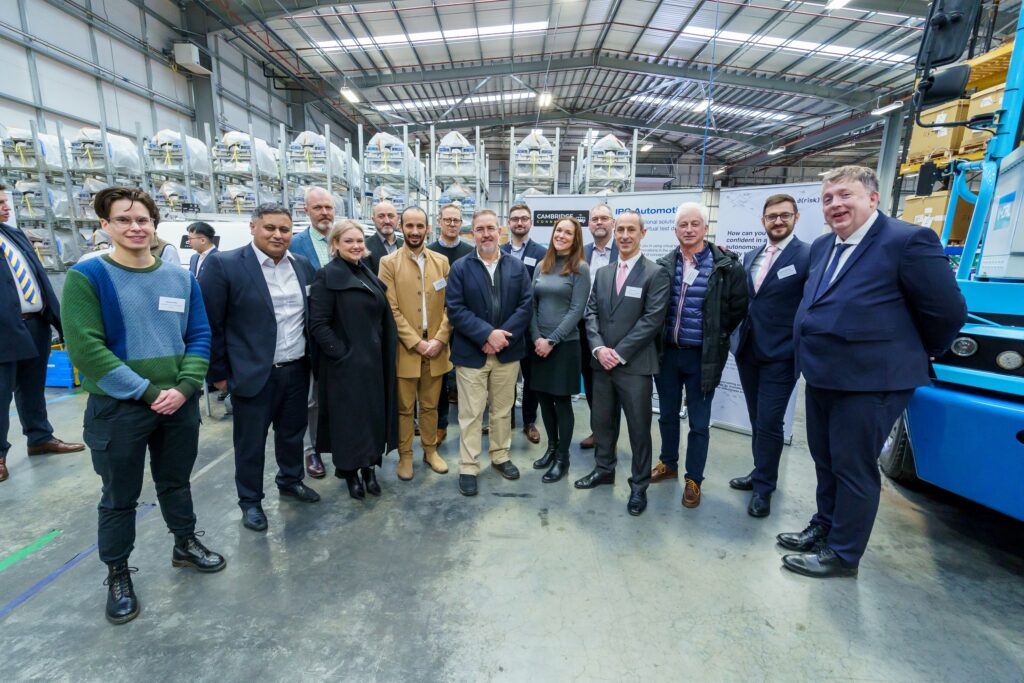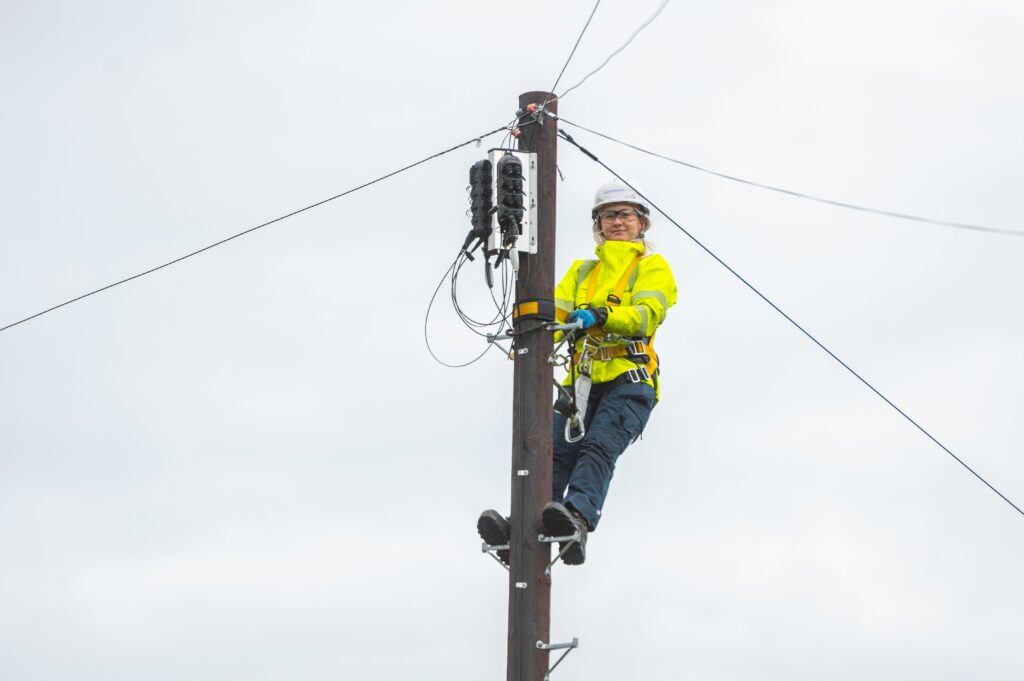UK government backing to trial self-driving shuttle buses in Cambridge

The Cambridge Project Connector consortium partners at the CCAV Deployment Competition Announcement event in Sunderland, January 2023
- Self-driving shuttle buses to help people get around Cambridge thanks to backing from the UK government.
- Up to 13 automated electric vehicles to serve routes around the city from 2024 onwards, for 12 months.
- £84 million in combined government and industry funding is being made available for commercial self-driving passenger and freight services, which could revolutionise public transport and passenger travel improving especially for those who don’t drive, better connect rural communities and reduce road collisions caused by human error.
People travelling around Cambridge will be able to take a ride in a self-driving shuttle bus, after a pilot scheme there was awarded a share of £84 million in joint government and industry support for self-driving transport technology. £42 million in government funding is being matched by a further £42 million from industry.
The Cambridge Project Connector is being led by the Greater Cambridge Partnership with support from Cambridgeshire County Council’s digital connectivity programme Connecting Cambridgeshire. It will trial an on-demand self-driving shuttle service around Cambridge University’s West Cambridge Campus, and the Cambridge Biomedical Campus, to supplement the transport options already available in the city. The vehicles, which will be seen on local roads from early 2024, will initially have a safety driver on board as backup, but will eventually operate without one, being monitored remotely instead. The government has awarded £8.7 million to the project, matched by industry to a total £17.4 million.
The project is one of seven successful projects from around the UK, and forms the most advanced set of commercial, self-driving passenger and freight operations anywhere in the world.
The grants, part of the Centre for Connected and Autonomous Vehicles Connected and Automated Mobility programme, will help British companies seize early opportunities to develop experimental projects into offerings ready for the market.
Business Secretary Grant Shapps said: “In just a few years’ time, the business of self-driving vehicles could add tens of billions to our economy and create tens of thousands of jobs across the UK. This is a massive opportunity to drive forward our priority to grow the economy, which we are determined to seize.
“The support we are providing today will help our transport and technology pioneers steal a march on the global competition, by turning their bright ideas into market-ready products sooner than anyone else.”
Transport Secretary Mark Harper said: “Self-driving vehicles including buses will positively transform people’s everyday lives – making it easier to get around, access vital services and improve regional connectivity.
“We’re supporting and investing in the safe rollout of this incredible technology to help maximise its full potential, while also creating skilled jobs and boosting growth in this important sector.”
Cllr Elisa Meschini, Chair of the Greater Cambridge Parntership’s Executive Board, said: “Cambridge is renowned as a place of innovation, where the technology of the future is discovered and realised to benefit the world. This is why it is incredibly exciting to be part of today’s announcement to help develop a new public transport system.
“In the last two years we have trialled autonomous vehicles and now these innovative self-driving vehicles are the next step to demonstrate how on-demand services will be part of the future for Greater Cambridge.
“People have told us how important better and more reliable public transport is, and these new autonomous vehicles, which will be seen next year, could help to transform the way thousands of people travel in and around Greater Cambridge every day to help cut congestion and give people another alternative to travelling by car.”
Almost £600,000 is also being awarded for feasibility studies, looking into how self-driving technology could improve public transport in four parts of the UK. These projects will look into potential routes where automated vehicles could operate exclusively from other traffic, to relieve congestion on the A414 through Hertfordshire and Essex, Birmingham and Solihull, Milton Keynes and eastern Cambridge. In Cambridge, the GCP team will be working in partnership with Arup and construction engineering company Costain, to look at how a proposed corridor would enable connections from new developments in the east of Cambridge to the rail network at Cambridge Station.
Self-driving vehicles could revolutionise public transport and passenger travel, especially for those who don’t drive, better connect rural communities and reduce road collisions caused by human error. Forecasts predict that by 2035, 40% of new UK car sales will have self-driving capabilities, with a total market value for connected and automated mobility worth £41.7 billion to the UK. This could create nearly 40,000 skilled jobs in connected and automated vehicle (CAV) technology.
The government is also committed to introducing legislation that will enable the safe and timely rollout of self-driving vehicles on UK roads. Under a proposed ‘safety ambition’ for self-driving vehicles to be equivalent in safety to a competent and careful human driver, vehicles will need to meet certain standards to be allowed to ‘self-drive’ on the roads throughout the lifetime of the vehicle. Organisations overseeing self-driving vehicles could face sanctions if standards are not maintained.
Find out more about the other joint government and industry funding winners to benefit from the CCAV Connected Automated Mobility programme’s £81m announcement.
Related Posts

East of England set for £51 million broadband boost

